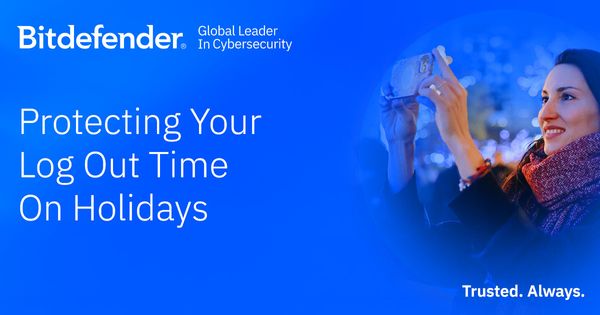Protecting your important: Stick to these 8 cybersecurity tips for safe Black Friday and Cyber Monday deal hunting

Black Friday and Cyber Monday, two of the biggest shopping events of the year, traditionally mark the beginning of the winter holiday shopping season. Despite their US origin, the retail bonanza has become an integral part of the retail industry across the globe, with many businesses already launching early deals to entice customers.
With global sales expected to top last year’s $65.3 billion Black Friday revenue, 2023 shopping events make a highly profitable affair for both retailers and cybercriminals who piggyback on increased consumer spending to launch scams and steal money.
Here are just some of the statistics on consumer spending and behavior, to give you an idea of why online shopping during Black Friday and Cyber Monday makes a prime opportunity for cybercrooks and identity thieves to strike:
- Black Friday sees 3 times more online traffic than the average day in October
- 53% of all Cyber Week traffic came from mobile devices in 2022
- 47% ($99.3B) of spending came from smartphones
- 87.2 million US consumers shopped online on Black Friday in 2022
- The top three payment methods in 2022 were credit cards, debit cards and PayPal
- Last year, Sweden and Italy were the countries most likely to do most of their Black Friday shopping online
- More than half (53%) of men in France planned to shop exclusively online during Black Friday 2022
- 44% of UK consumers say they plan to concentrate their shopping during Black Friday sales
Given consumers’ keen interest in grabbing the best deals of the year and even crossing some items off their Christmas shopping list, it has become paramount for users to protect their information and wallets from increased malicious activity.
If you choose to forego crowds and do your holiday shopping online in 2023, stick to these eight cybersecurity tips for a safe and scam-free shopping experience:
1. Make sure your browser, apps and security software are up to date
The best part of Black Friday and Cyber Monday shopping is that you can do it from the comfort of your home, in your PJ’s while drinking a hot cup of coffee. But before you begin hunting for the best deals, ensure that your software is up to date. Keeping browsers, shopping apps and security software up to date can protect you from exploits, privacy issues and cyberthreats.
2. Share only basic data online
If your shopping cart is full and you’re ready to check out, give out as little information as possible. Only share information that is needed to complete your order and avoid saving your payment card information on the platform, especially if it’s a new retailer. Use this rule whenever you create an account on other shopping platforms too.
3. Make your passwords strong and unique
This is a cybersecurity must! Before shopping, check if your accounts are set up with strong and unique passwords. If you unwittingly fall victim to a scam or a hacker steals your credentials, they won’t be able to compromise other sensitive accounts. Enable any additional form of authentication for the platform too, including 2FA and MFA for additional protection.
Use a password manager to help you in this process, manage your account information, and protect you against copycat websites where you may unknowingly enter your credentials.
4. Use HTTPS only for purchases
Online retailers using HTTP instead of HTTPS in their URL should be avoided at all costs. HTTP protocols lack encryption, making it very easy for malicious actors to steal information you communicate on the website.
5. Scrutinize Black Friday and Cyber Monday email deals
Marketing emails are highly profitable avenues for retailers, but they are also among the main ways cybercriminals commit fraud and hijack your accounts and devices.
All subject lines you receive in November announcing big sales should be handled with care. Before interacting with any messages, check the sender's email address and look for red flags, including requests for personal information. When in doubt, simply research the deal and offer on the official retailer's website.
Any email correspondence that promises you early access or the chance to win additional discounts, or asks you to fill out a survey in return for extra discounts, vouchers and gifts for small fees are scams.
6. Be extra vigilant about attachments
Malicious software designed to spy on your online activity and steal passwords and other sensitive information from your devices mainly spreads through email attachments in unsolicited correspondence. Malware can be disguised as a Black Friday-themed coupon or magazine of 2023 deals.
You should only download an attachment if you requested it or if you are expecting the file from a known sender.
7. Research deals and too-good-to-be-true offers
Always research deals and offers you see online. If it sounds too good to be true, it probably is. Not sure of the legitimacy of the deal you see in an email or ad on social media? Contact the retailer for more information or do some price checks on the websites of other vendors.
8. Say no to public Wi-Fi
Public Wi-Fi connections lack encryption and security, and you should never conduct your shopping or banking over unsecure connections in malls, cafes and airports. You can never know if threat actors or other malicious individuals are intercepting your traffic to steal shopping data and personal info.
If you must connect to a free public Wi-Fi, we recommend using a VPN to hide your traffic and protect your data from snoops.
When you’re all done with your holiday shopping, don’t forget to stay vigilant against scams, and monitor your account statements for suspicious activity. If you notice any unusual transactions, immediately report it to your financial services provider and the police. Be especially wary of small amounts, since they are a primary indicator that crooks are attempting to clean out your bank account.
Let us PROTECT YOUR IMPORTANT this shopping season!
Use Bitdefender security solutions for best-in-class protection for Windows, Mac, Android and iOS to ensure safe browsing and shopping experiences. Our web threat prevention blocks malicious content (URLs, untrusted websites, fraudulent webpages and phishing links) and notifies you of the dangers of accessing unfamiliar links. Moreover, the dedicated secure browser (Bitdefender Safepay) brings an extra layer of security with a built-in VPN designed to keep your banking, e-shopping and online transactions secure and private.
Read more about our security, privacy and identity protection solutions, here.
tags
Author
Alina is a history buff passionate about cybersecurity and anything sci-fi, advocating Bitdefender technologies and solutions. She spends most of her time between her two feline friends and traveling.
View all postsRight now Top posts
How to Protect Your WhatsApp from Hackers and Scammers – 8 Key Settings and Best Practices
April 03, 2025
Outpacing Cyberthreats: Bitdefender Together with Scuderia Ferrari HP in 2025
March 12, 2025
Streamjacking Scams On YouTube Leverage CS2 Pro Player Championships to Defraud Gamers
February 20, 2025
How to Identify and Protect Yourself from Gaming Laptop Scams
February 11, 2025
FOLLOW US ON SOCIAL MEDIA
You might also like
Bookmarks







